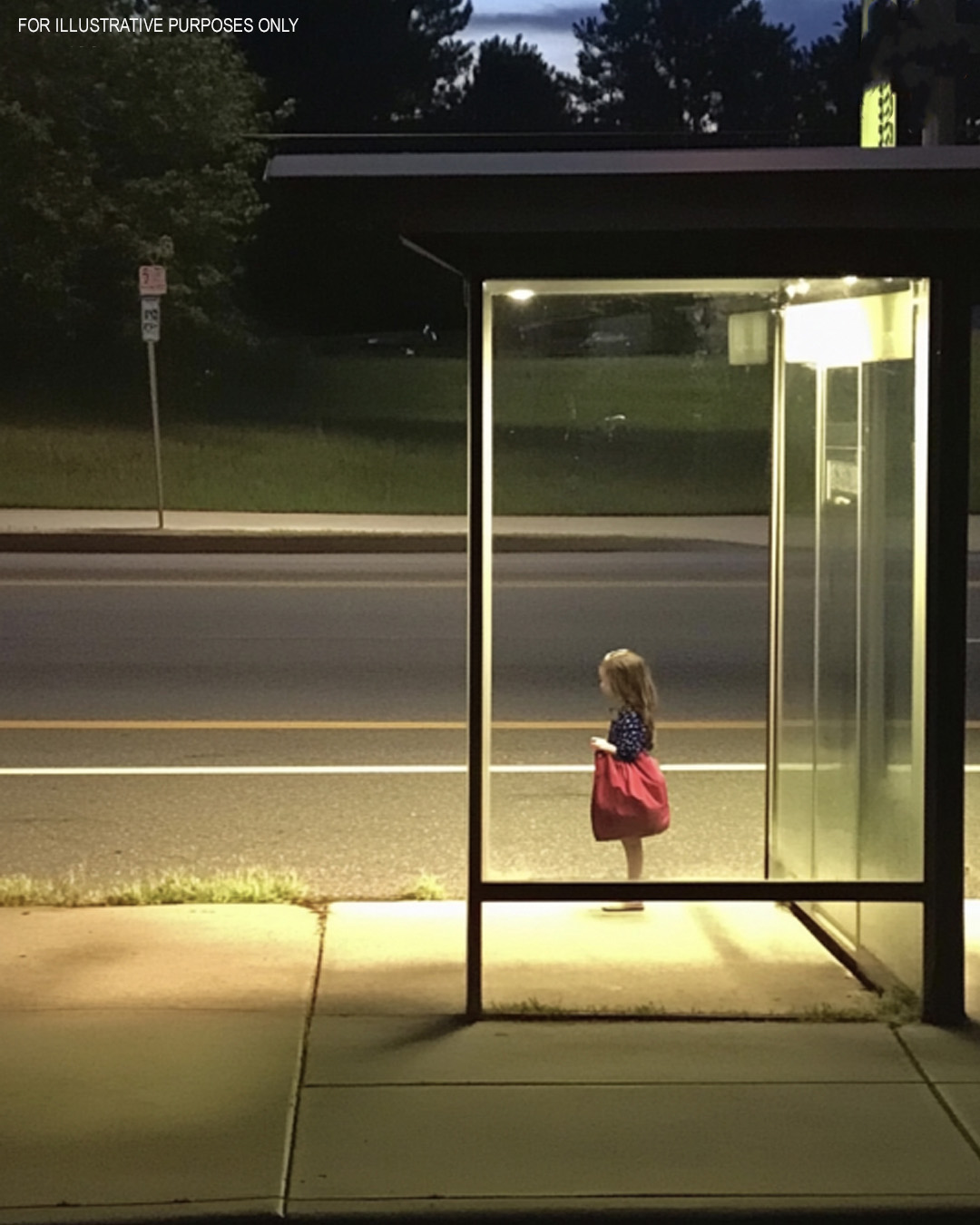When Samantha moved into her new neighborhood, she spotted a lonely little girl clutching a red bag, standing at the bus stop every evening.
Something about it didn’t sit right, but she dismissed her thoughts. However, one morning, she discovered the girl’s red bag abandoned on her doorstep, unveiling a heart-wrenching truth that brought her to tears.
Starting fresh at thirty-two years old and newly single, I had moved into a quiet neighborhood, leaving behind the chaos of a bustling city newsroom. This new chapter was supposed to be my escape, my break from the endless cycle of ringing phones and clattering keyboards that had consumed my life for eight years.
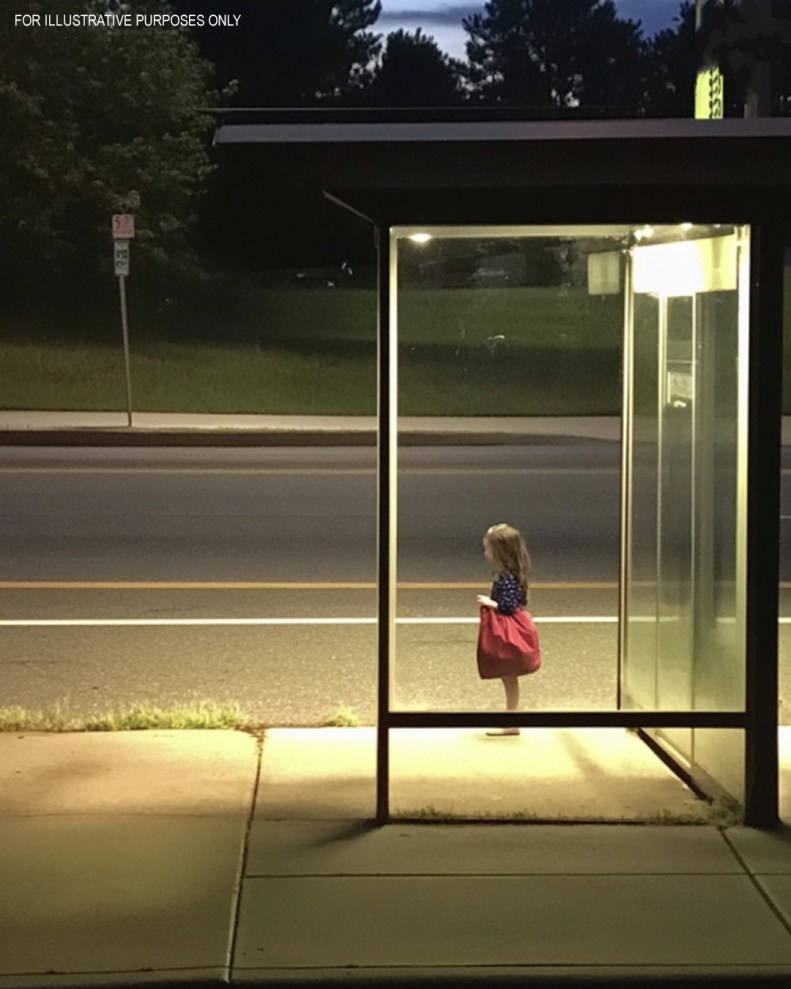
The tranquility of my new street felt like a soothing balm, a welcome embrace I didn’t realize I needed. Ancient maple trees lined the road, their leaves whispering secrets carried by the gentle breeze.
The houses stood as aging storytellers, with some sporting faded, peeling paint and others with vibrant flower boxes bursting with colorful blooms.
Only a few cars passed by each day, their distant rumble more like a memory than an intrusion. Here, in this serene place, I rediscovered the forgotten symphony of nature—the chirping sparrows at dawn, the soft rustling leaves, and the occasional bark of a neighborhood dog.
While unpacking on my first evening there, I spotted her—a little girl standing alone at the bus stop across the street. She couldn’t have been older than eight, her oversized red jacket suggesting it was handed down or chosen for more than mere warmth.
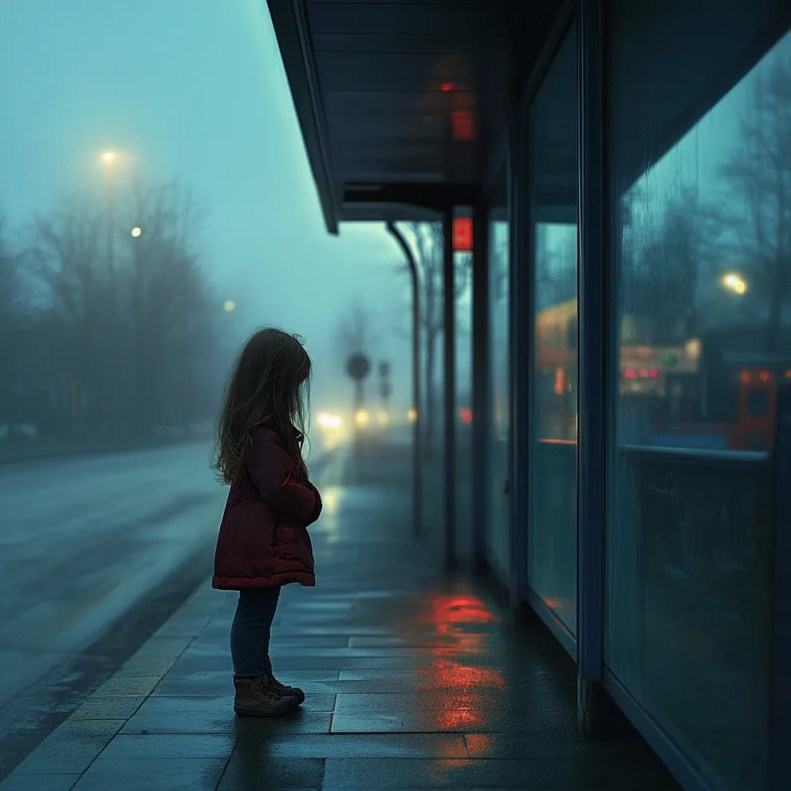
Her small hands held the red bag tightly to her chest as if it contained her most valued possessions. Her gaze wasn’t directed towards me but toward my house, and it carried layers of emotion no child should have to bear.
Her eyes, even from afar, revealed a world of loneliness and silent conversations with memories beyond what any adult could comprehend. I assumed she was waiting for someone and thought little of it that first evening. My background in journalism had taught me to observe, not always to intervene.
Yet, she was there again the next evening, at the same time, holding the same red bag with the same unwavering stillness—a haunting yet magnetic presence.
By the third evening, my curiosity had me pacing like a journalist unable to let go of a story. I found myself drawn to the window, trying not to appear like the newcomer eager to understand the neighborhood’s mysteries.
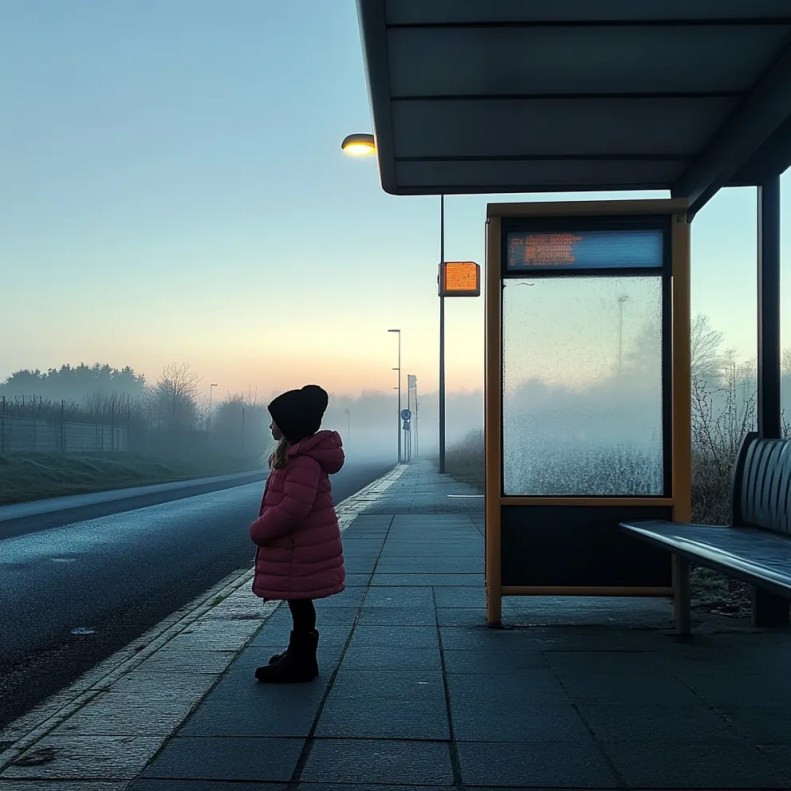
There she stood, watchful and still, night after night.
“Okay, Samantha,” I told myself, using the same tone I would with a difficult source, “just ask if she’s alright.”
I stepped outside my creaky wooden porch, but before I could break the silence, she turned and darted down the street, her red bag bouncing against her back like a warning flag.
Feeling more lost than she appeared, I watched her vanish into the twilight. It was as if she chose mystery and silence over explanation and conversation.
The following morning began typically, weak sunlight filtering into my kitchen and casting shadows across the floor. While eating my cereal, something outside caught my eye.
I opened the door to find the little girl’s red bag quietly placed on my doorstep.
The strap was worn and thin, indicating many journeys. Frayed and faded with small repairs that spoke of a careful, loving touch, it felt heavy in my hands.
“Why is her bag here?” I wondered aloud, glancing around, but she was nowhere in sight.
Inside the bag, I found delicate little creations breathing imagination—bottle cap houses, fabric scrap dolls, and wire cars, each telling unique stories of survival.
At the bottom of the bag, a note on worn paper read: “My name is Libbie. I make these toys to pay for my grandma’s medicine. She’s very sick, and I don’t know what to do. I have no one else because my mom and dad died in a car crash three months ago. Please, if you can, buy them. Thank you.”

The words pierced my heart. Those few lines told tales of loss and a small heart trying to be brave in the face of unimaginable odds.
I didn’t pause. With trembling hands, I filled the bag with all the cash I had, not for a purchase, but as a sign of human connection.
I carefully laid out each toy on my kitchen table, their beauty shining in the morning light as miracles of resilience.
This was just the beginning for Libbie and me. That evening, I waited anxiously for her.
The gentle crunch of footsteps announced her approach, and I saw her crouched near my door like a cautious creature. Under the evening light, she looked so fragile, her oversized sweater exaggerating her smallness.
“Hi there,” I called softly, stepping out with care. “It’s okay. You don’t have to run.”
Her eyes, wide with deep-seated fear, met mine briefly. There was a weight within them beyond her years, filled with guarded pain.
“Wait,” I said kindly, holding out my palms to show peace. “I only want to talk. Don’t be frightened.”
She hesitated, eyes darting from her bag to me, measuring if I was a threat or a friend.
“I didn’t mean to bother you,” she said, her voice carrying both hope and resignation—not feelings any child should know.
“You’re not a bother,” I assured softly with warmth. “How about some cookies and warm milk inside?”
Her small shoulders, burdened by family survival, eased slightly. “Alright,” she nodded, a tiny bridge of trust forming between us over kindness.
Inside my kitchen, she sat in an oversized chair, clutching a mug of warm milk, her little hands wrapped tightly around it like a lifeline.

Each cookie bite was cautious, as if the food might vanish too soon.
“Why didn’t you knock instead of leaving your bag here?” I asked gently.
She shrugged, eyes fixed on her lap. “I saw you watching me. I hoped you’d be nice. But people usually chase me when I try selling toys. They think I’m a bother.”
“Sweetie,” I instinctively called her.
In that moment, something profound happened. Her lip trembled, a mix of sadness and remembered love. “My mom called me that,” she whispered, eyes glistening with memories of a past stolen from her.
“Your mom sounds wonderful,” I said, feeling a deep ache in my heart.
Libbie nodded, a movement carrying the weight of her loss. “She was. My dad too. Mornings were our bus stop time before school and evenings when mom waited for us. I stand there because it feels like they’re around.”
Her words revealed a child’s quest to keep her parents’ memory alive, grasping at routine as a connection to the past.

I reached out, covering her small hand with mine. “You’re not alone, Libbie. I’m here. We’ll figure this out together.”
And in that second, something shifted—not only between us but in what family could mean. A year later, everything transformed through unexpected compassion.
Dave, my longtime boyfriend, and I adopted Libbie. Her laughter filled the house, enriching every corner as she embraced life fully.
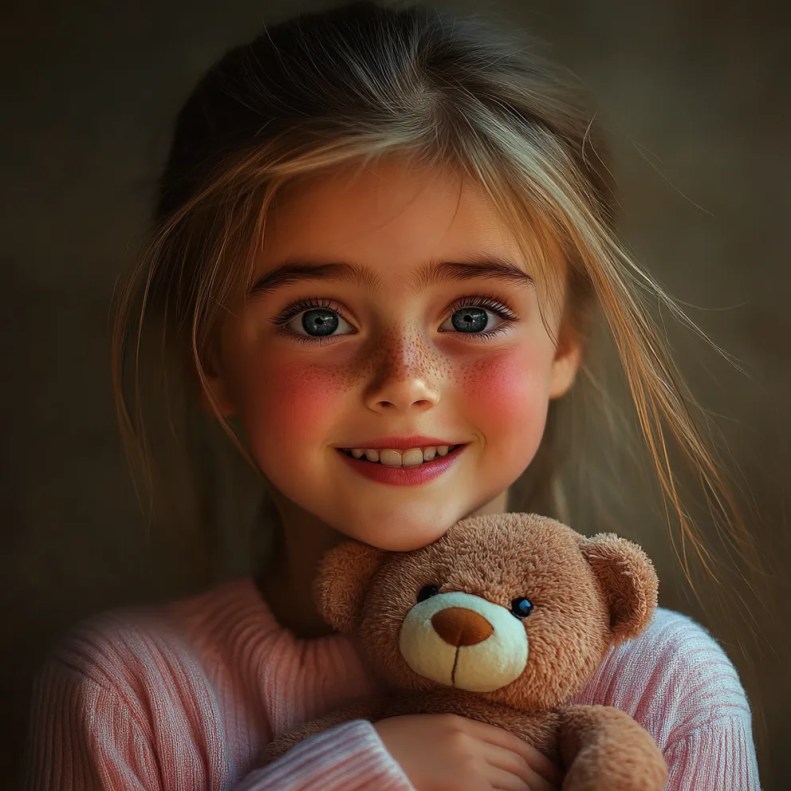
Her toys, once a survival tool, became expressions of creativity. Her grandmother, Macy, now receives the care she requires, with no more fears about her treatment.
Libbie is flourishing—her school days filled with promise, no longer burdened by worry. Dave and I created a website for her toys, and her story touched many, turning creativity into support for her grandma’s care.
Some evenings, I watch her stand by the bus stop, her red bag now a symbol of hope rather than necessity. When asked about the ritual, she says, “It’s nice to remember the good times, but nicer knowing I can come home to you.”
Each time she says that, I recall seeing her for the first time—a lonely child with a red bag at a crossroads of memory and hope, wondering how simple encounters can bind people together and redefine family.
Some stories aren’t simply told. They unfold, one heartfelt moment after another.
